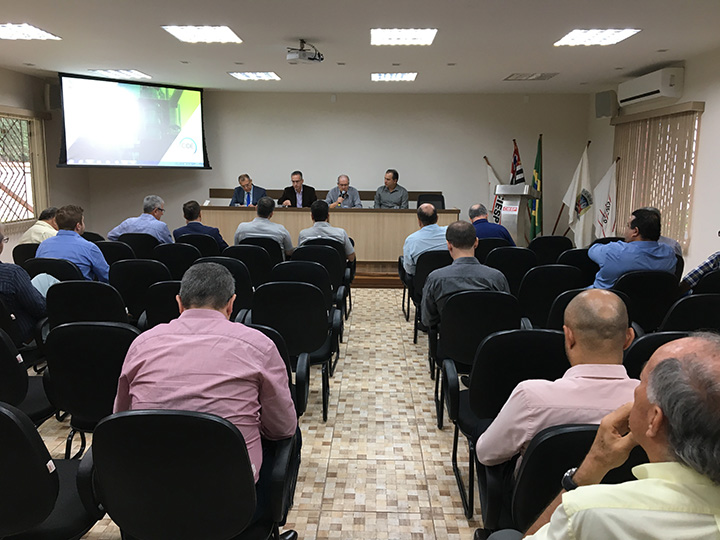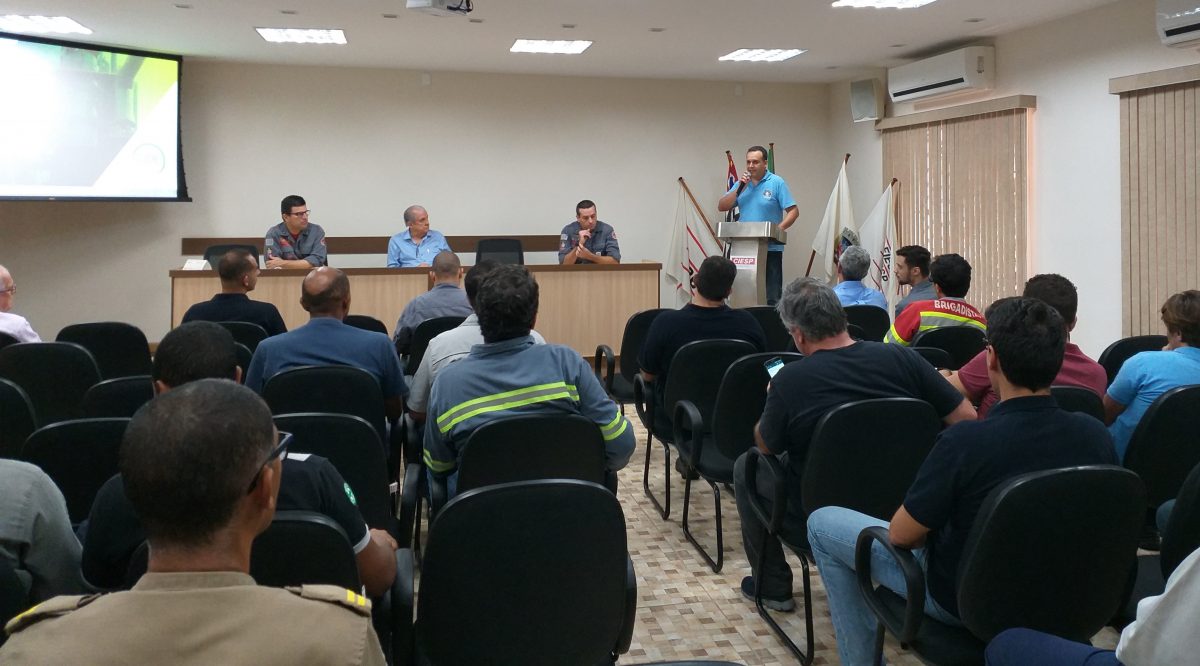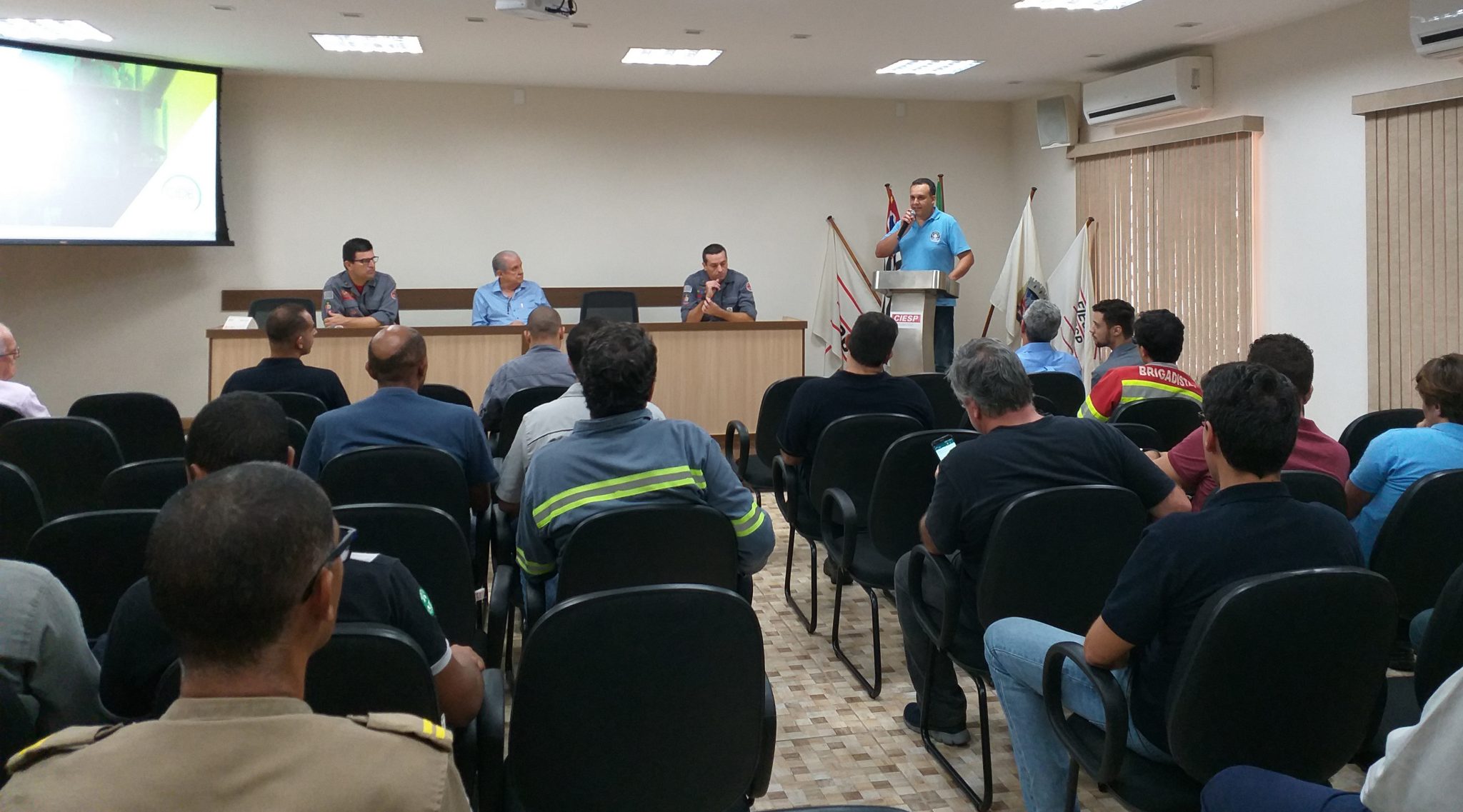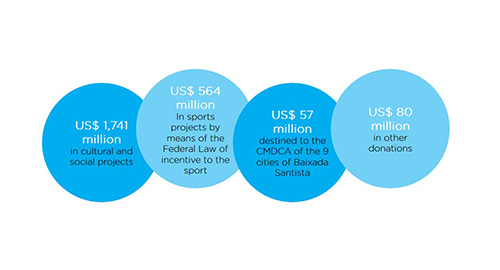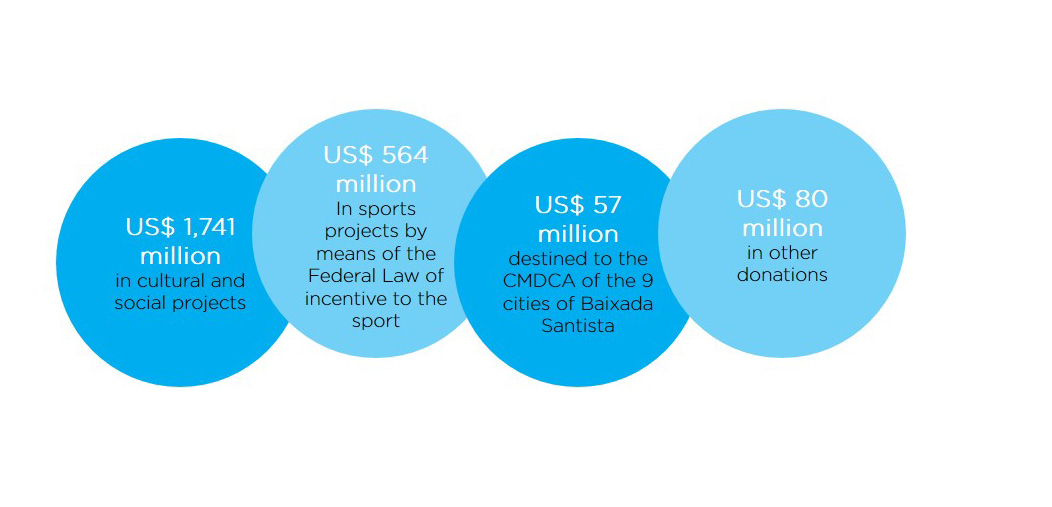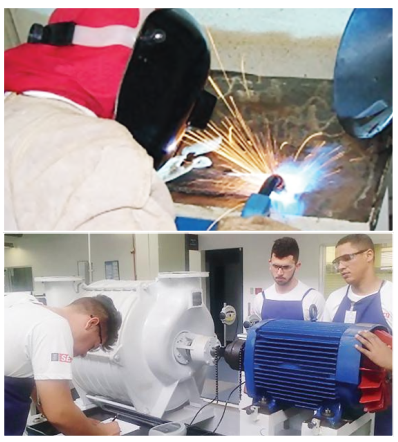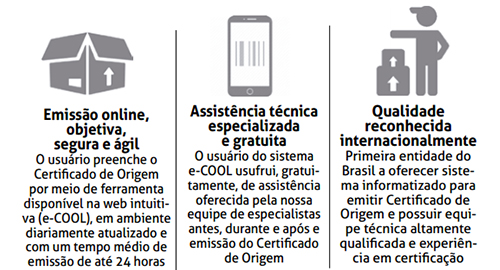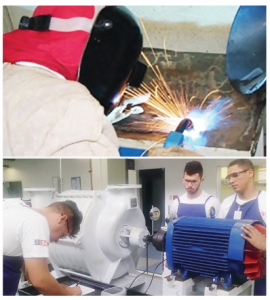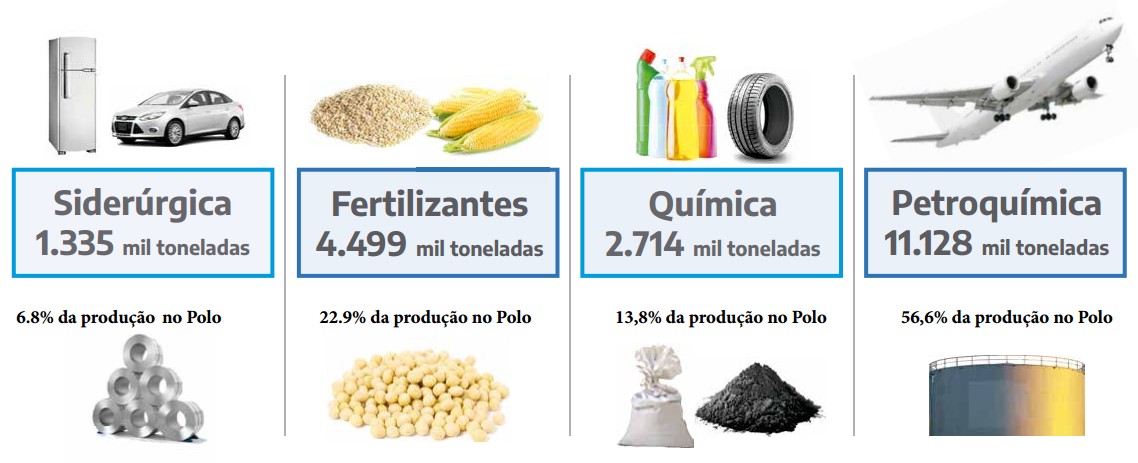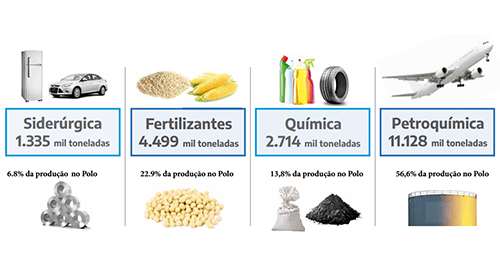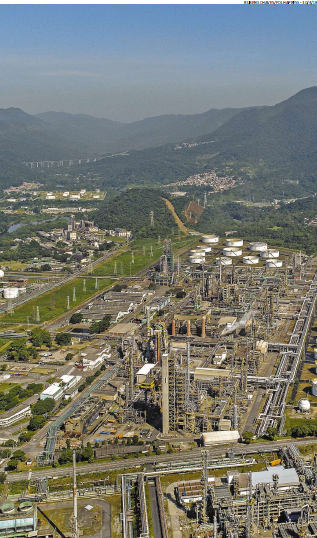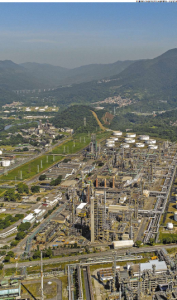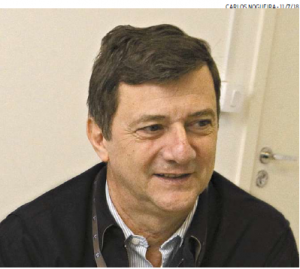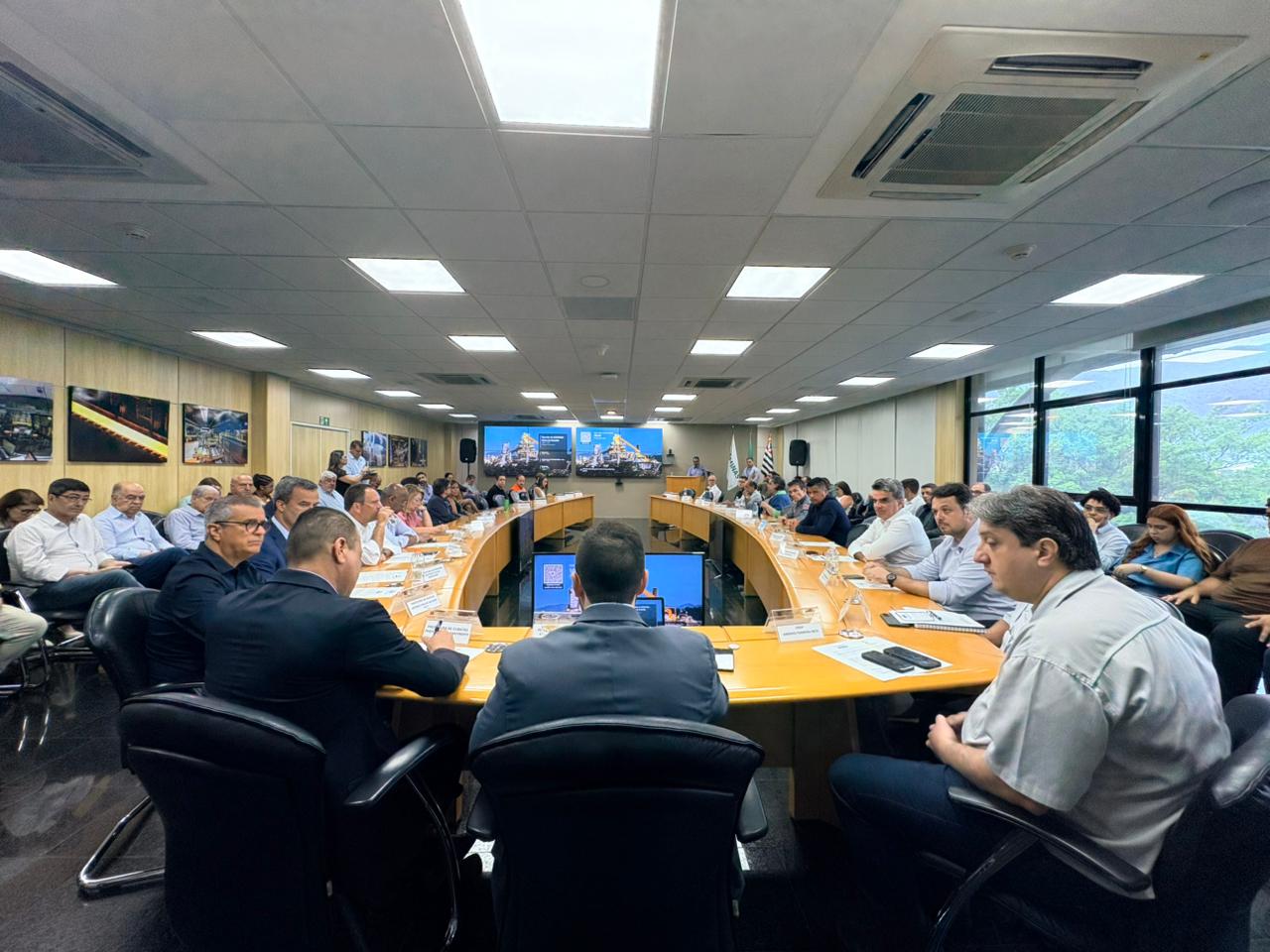No último dia 17, O Centro das Indústrias do Estado de São Paulo (Ciesp) – Regional de Cubatão recebeu a visita do novo presidente do Conselho de Desenvolvimento da Região Metropolitana da Baixada Santista (Condesb), Luiz Maurício Passos de Carvalho Pereira. O presidente, que também é o atual de prefeito de Peruíbe, foi eleito em março para exercer o cargo com o mandado de um ano, substituindo o ex-presidente e prefeito de São Vicente, Pedro Gouvêa.
O encontro reuniu a Diretoria do Ciesp Cubatão, representada pelo diretor titular Raul Elias Pinto e 2° vice-diretor José Roberto Heleno de Marquis, e o Conselho Diretor da instituição, além de contar com a participação do secretário municipal de Finanças do Guarujá, Adalberto Ferreira da Silva, representando o prefeito da cidade, Valter Suman.
Assim como nas gestões anteriores, o Ciesp Cubatão apresentou ao novo presidente da Condesb pleitos e contribuições desenvolvidos por grupos de trabalho, formados por integrantes da Indústria, com o principal objetivo de auxiliar às gestões municipais no fomento do desenvolvimento sustentável da Região Metropolitana da Baixada Santista como um todo. Os temas abordados no documento integram ações e direcionamentos nos principais segmentos de atuação da indústria e de grande importância para as cidades da região como: siderurgia, química, fertilizantes, petróleo/derivados, serviços, infraestrutura, turismo, cultural e social. O material também foi entregue anteriormente aos ex-presidentes Pedro Gouvêa e Alberto Mourão.
Luiz Maurício aposta na parceria com o Ciesp Cubatão para unir forçar na região. “Após enfrentarmos um cenário difícil em 2018, seguimos com a certeza de que a integração é o melhor meio para o sucesso de nossa atuação. Os pleitos e contribuições são de grande valia para toda a região e vão de encontro aos grupos de planejamento que estamos estruturando para lidar com estes segmentos. E em todas as ações sempre buscaremos estarmos mais próximos da sociedade civil para sermos mais fortes”.
“A Prefeitura do Guarujá reconhece o Ciesp Cubatão como promotor de oportunidades. Sabemos que podemos contar com a instituição como principal consultor estratégico para o desenvolvimento urbano da região”, ressalta Adalberto Ferreira.
Para Raul Elias Pinto, a região se fortalece quando vista de forma integrada. “Cada cidade tem sua característica e isto deve ser ressaltado pelos interlocutores públicos. Elaboramos estes pleitos e contribuições para as gestões anteriores e daremos continuidade à busca por resultados promissores para todas as cidades, tornando a Baixada Santista uma grande região atrativa para investimentos e negócios”.
Gerenciado pela Agência Metropolitana da Baixada Santista (Agem), o Condesb é composto por representantes políticos das prefeituras das nove cidades da Baixada Santista e nove representantes do Governo do Estado, atuando em prol de interesses comuns da região e visando um melhor desenvolvimento para a mesma.

